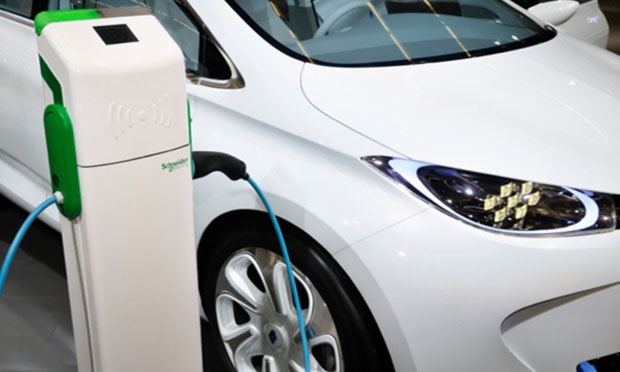The popular vision of electric cars is often an idealized one: Silent and nonpolluting, they glide peacefully through neighborhoods powered by far-off windmills and solar panels. While their lack of noise is undisputed — though even that sometimes has its dangers — electric vehicles (EVs) are only as clean as their source of their electricity. Moreover, understanding the environmental friendliness of any consumer good requires looking at its entire life cycle, from the extraction of raw materials to its disposal or recycling.
A 2012 study published in the Journal of Industrial Ecology, “Comparative Environmental Life Cycle Assessment of Conventional and Electric Vehicles,” analyzes how electric cars stack up against those with traditional gas and diesel engines over their entire life cycles in a European context. In particular, EVs require sophisticated electronics, large batteries and rare earth materials, all of which can have significant environmental impacts.
The researchers, Troy R. Hawkins, Bhawna Singh, Guillaume Majeau-Bettez and Anders Hammer Strømman of the Norwegian University of Science and Technology, created a inventory of the inputs required for both conventional and electric vehicles and assessed them over the lifetimes of each type. Two second-generation EV battery technologies were also analyzed to better understand the environmental costs and benefits of each. Energy efficiency during the “use phase” of vehicles’ lives was measured in city and countryside driving, as well as during regenerative and overnight charging. End of life was assumed to occur at 150,000 km, and the disposal impacts were allocated to the vehicles’ life-cycle costs.
The study’s findings include:
- “EVs powered by the present European electricity mix offer a 10% to 24% decrease in global warming potential (GWP) relative to conventional diesel or gasoline vehicles assuming lifetimes of 150,000 km.”
- While much of the global-warming potential of internal-combustion energy vehicles is associated with their use, nearly half of an EV’s life-cycle GWP is associated with its production. “We estimate the GWP from EV production to be 87 to 95 grams carbon dioxide equivalent per kilometer (g CO2-eq/km), which is roughly twice the 43 g CO2-eq/km associated with [internal combustion engine vehicles] production.”
- Batteries contribute 35% to 41% of the global-warming potential of the production phase of an EV; by comparison, the electric engine contributes only 7% to 8%. “Other powertrain components, notably inverters and the passive battery cooling system with their high aluminum content, contribute 16% to 18% of the embodied GWP of EVs.”
- “Because production impacts are more significant for EVs than conventional vehicles, assuming a vehicle lifetime of 200,000 km exaggerates the [environmental] benefits of EVs to 27% to 29% relative to gasoline vehicles or 17% to 20% relative to diesel because production-related impacts are distributed across the longer lifetime.”
- “An assumption of 100,000 km [lifetime use] decreases the benefit of EVs to 9% to 14% with respect to gasoline vehicles and results in impacts indistinguishable from those of a diesel vehicle.”
- Figures from the European Union indicate that the E.U. generates significantly more power from renewable sources than does the United States. Consequently, the current potential of EVs in the U.S. to decrease global warming impacts is correspondingly lower.
While electric vehicles have the potential to reduce global warming, the authors state, improving their environmental profile “requires engagement around reducing vehicle production supply chain impacts and promoting clean electricity sources in decision making regarding electricity infrastructure.”
Tags: cars, renewable energy, technology, fossil fuels, life-cycle, lifecycle


Expert Commentary